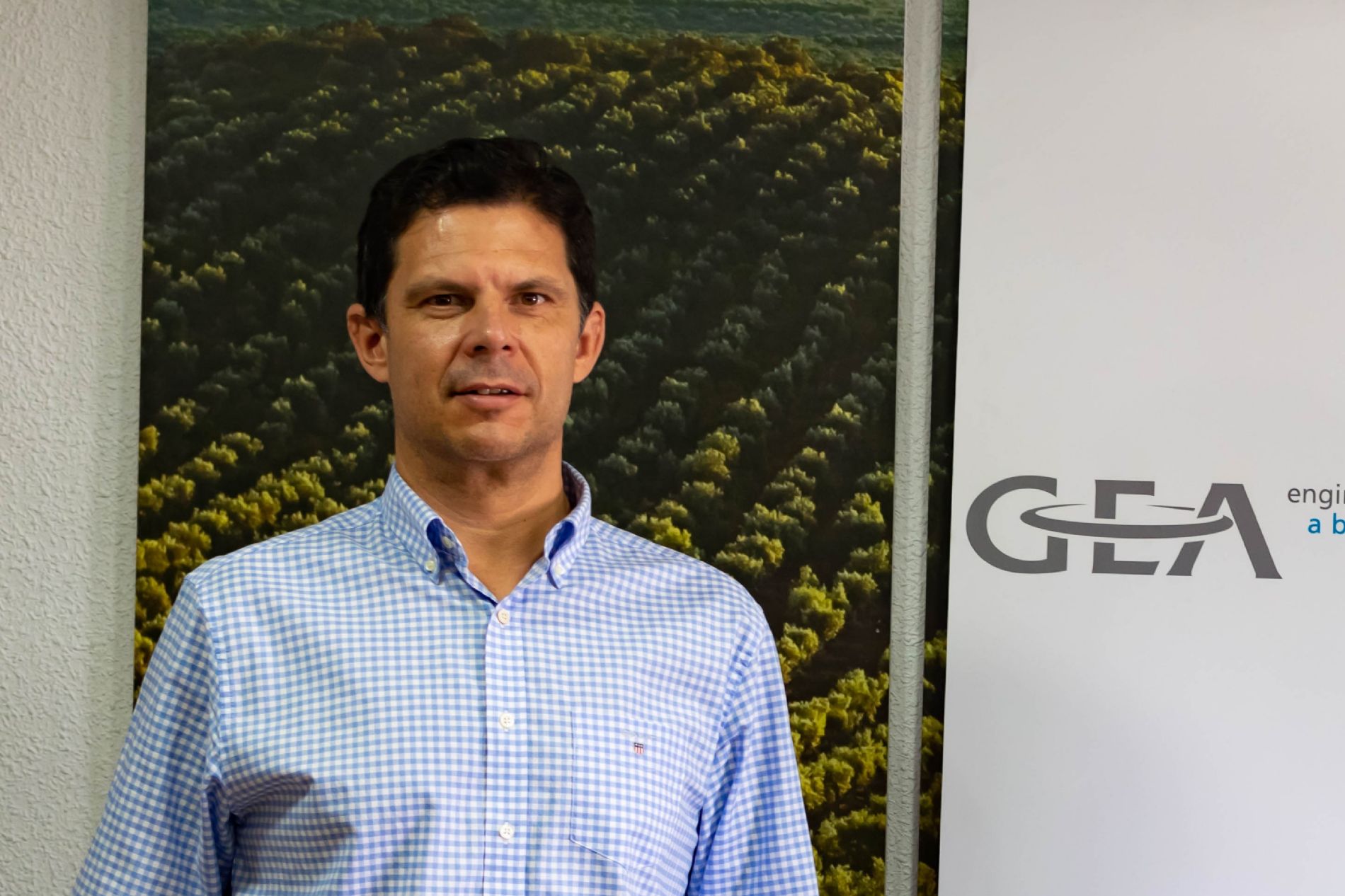
What is GEA's role in the olive grove and olive oil sector?
GEA has played a very important role in the olive grove and olive oil sector for decades. Since the beginning of the 20th century, we have been involved in olive oil production and have witnessed and played a leading role in the modernization and integration of the latest technology in this sector. We have also worked to promote the importance of sustainability in the sector. We have also developed important informative and training activities for olive oil professionals through events, courses and different collaborations. In this sense, we are a company with an important social value for the sector.
What is your bet in the olive grove and olive oil sector for the coming years, both in the Spanish and international markets?
GEA has always been one hundred percent committed to the olive grove and we will continue to do so. We believe that the key is for olive mills and cooperatives to reach optimum levels of efficiency and competitiveness, and to achieve this it is necessary to optimize resources, such as lower water and electricity consumption, or the reuse of by-products. For this reason, our main bets lie in ensuring that our customers achieve the highest quality and profitability, sustainability and the use of these by-products.
Currently, there is a great deal of competition in the olive mill machinery market. What would you highlight about GEA's technology?
Our passion for engineering and research has always characterized GEA as having the latest technology, with the highest reliability. In addition, our extensive know-how in a wide variety of industries gives us a competitive advantage when it comes to applying innovative solutions or best practices that we find in them. GEA is a consolidated company, with a wide global spectrum, but also a local one. Our machinery has the global reach that only a company of GEA's magnitude can provide, while our team has the proximity and trust of a local company.
How does GEA's Center of Excellence in Olive Oil help professionals in the sector? How has the Center come to mimic the way it has in the national and international sector?
GEA has always been committed to the olive sector and we are involved from different perspectives, such as training, attending and supporting trade fairs and, of course, accompanying our customers in the complete development of their solution. From the training point of view, we organize the Encounters of Oil Mill Masters and Managers, which in 2023 celebrated its seventeenth edition, and which is one of the most important and traditional training events in the olive oil sector in Spain. We also organized, together with the University of Jaén and the Association of Oil Mill Managers (AEMODA), the Training Course on the Virgin Olive Oil Production Process.
As for trade fairs, we attend and support important events such as Expoliva, of which we are sponsors, or Agroexpo. In addition, GEA is always with its customers, both national and international, to support and help them throughout the life cycle of the project, from project design to start-up and after-sales service.
GEA Service technical assistance offers preventive maintenance programs designed to prepare the mills and extraction lines for the next campaign, helping to start as soon as possible and in the best conditions, while extending the performance and life of the equipment. More than 40 technicians specialized in Olive Oil, with many years of experience at the service of our customers, are ready to travel to any point of the Iberian Peninsula. A team of experts in the needs of olive oil mills.
What challenges lie ahead for the olive oil sector in the short and medium term?
The main challenge in the short term for the olive oil sector is to overcome the two difficult seasons we have been having with low production as a result of the weather. In this line, the sector must face climate change by optimizing the resources it has, for example, making more efficient use of available irrigation water, looking for olive varieties that are more resistant to drought, through by-products or using digital tools that help in the optimal management of the mill.
At the marketing level, it must maintain stable prices to ensure the loyalty of consumers of this product, which is characterized by its healthy conditions.
As far as GEA is directly concerned, machinery, the sector must continue to evolve in the incorporation of new technologies and in the commitment to sustainability. As I mentioned earlier, we work to ensure that olive oil mills and cooperatives reach optimum levels of efficiency and competitiveness.
What can your participation in an international project such as the World Olive Oil Congress bring to GEA?
Each and every one of the professionals in the oil sector contributes every day to GEA, and therefore a congress that brings together a large network of these, even more so. GEA is part of the sector and moves forward with it, which is why we participate in a wide variety of initiatives that add up and make it move forward, as is the case of the World Olive Oil Congress.
